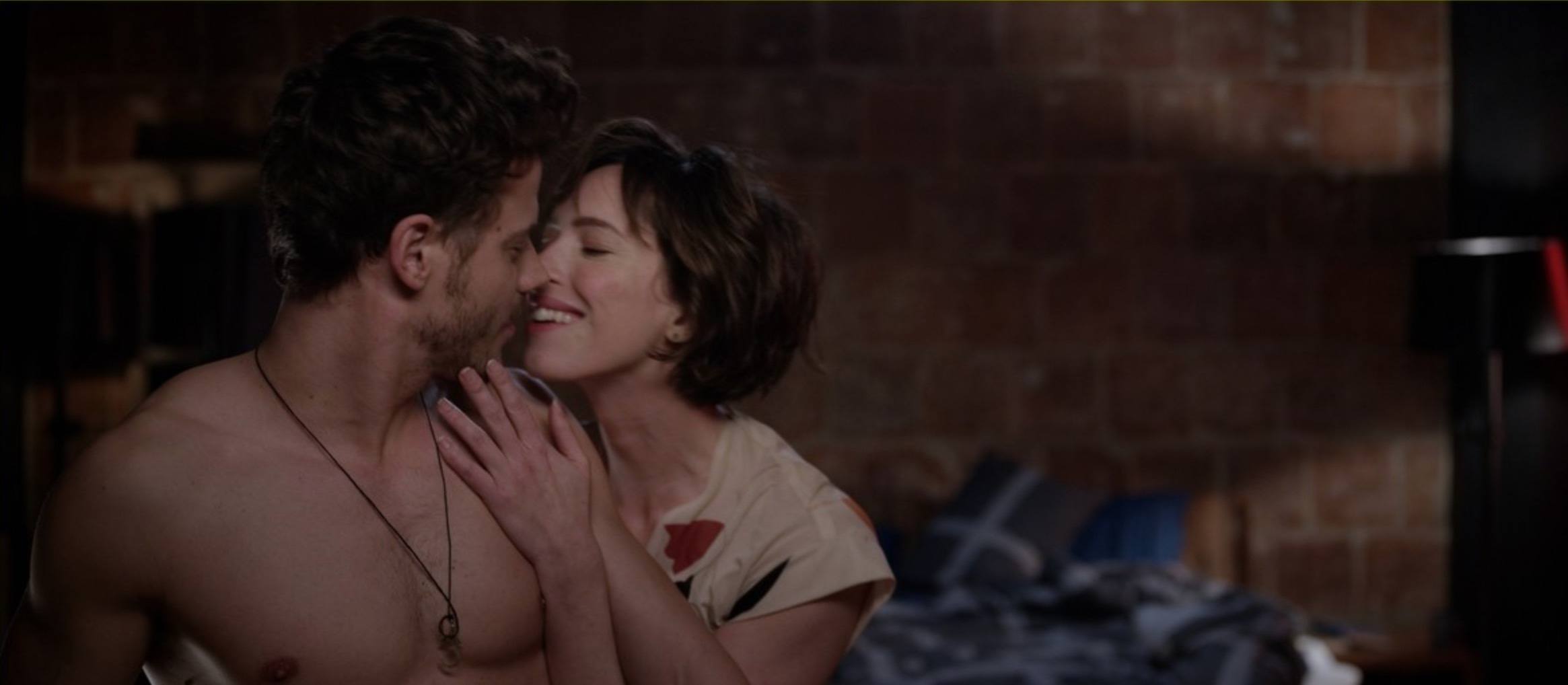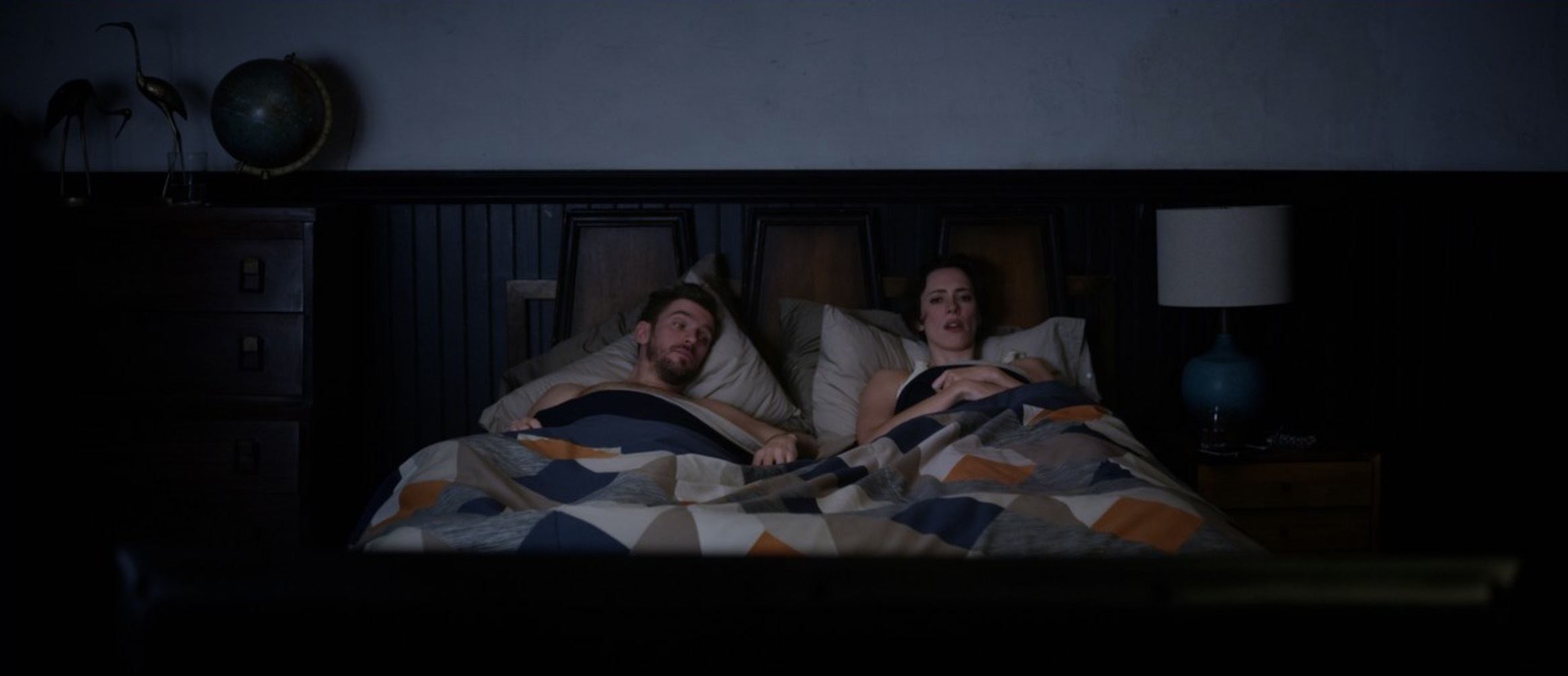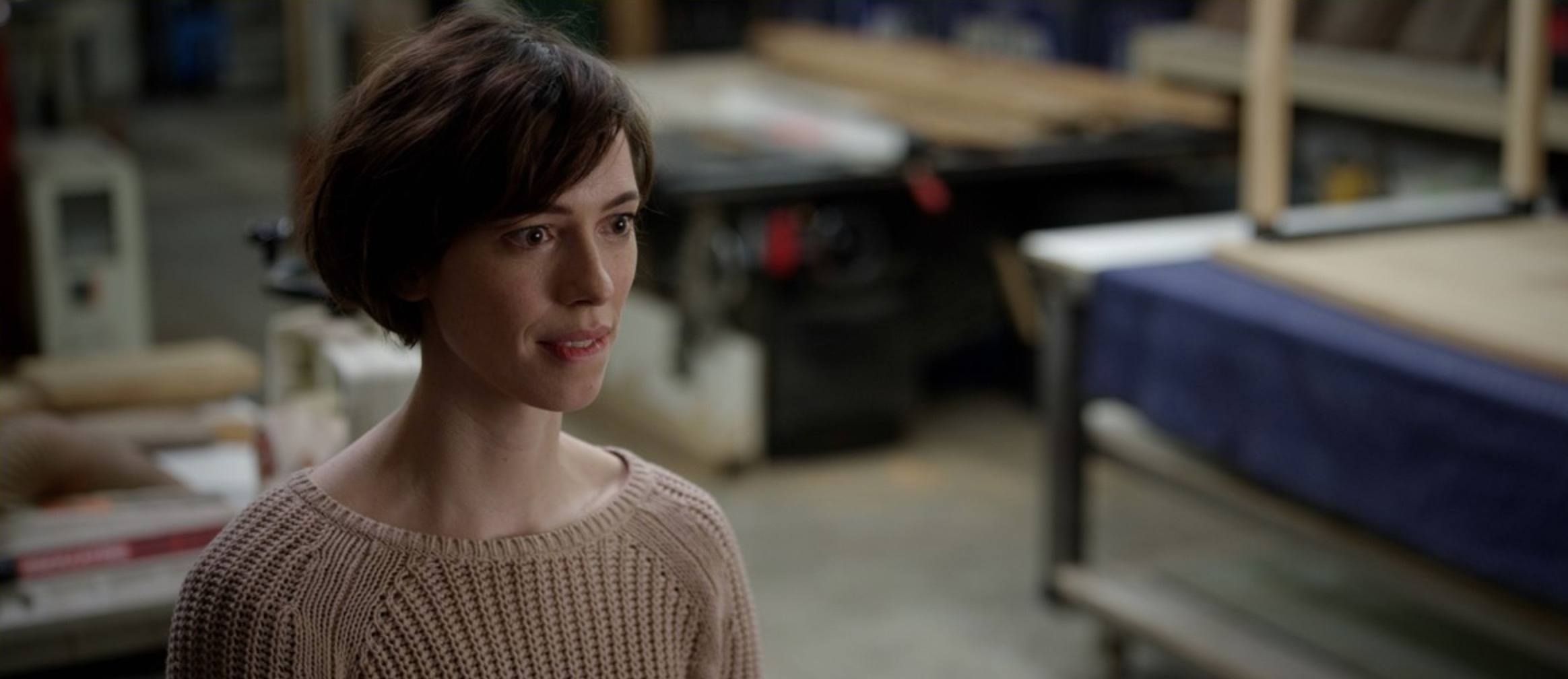It begins with a strong premise: the movie Permission features the archetypical strong couple, the long-standing relationship that begun at a young age during your formative years and grew into a monument of love that will withstand the test of time. We all know that couple or, if you’re lucky, are part of one yourself. Protagonists Anna (Rebecca Hall) and Will (Dan Stevens) dinner with their best friends, Hale and Reece, another couple that collectively points out they’ve never been with other people romantically.
While Hale (David Joseph Craig) finds it adorable, the brasher Reece (Morgan Spector) brings up the obvious quandary: how can you know you’re with the right person if you’ve never been with anyone else? How can you know if your sex is good if one person is all you know? Can you be certain about the greatness or strength of anything in isolation, without knowledge of anything else for comparison? The thought buries itself under the skin of their relationship as we, the audience, see the mundane nature of their relationship—the quick missionary sex, the value of practicality and familiarity over fun and adventure, the life of a couple on auto pilot as their relationship follows the beaten path of expectations. Permission then finds its form as a film exploring ethical non-monogamy, a less-comedic version of Hall Pass but more comedic than the season 2 episode of Netflix’s Easy.
As a whole, Permission‘s charm lives in its moments of not taking itself too seriously, shown in a few laugh-out-loud moments in conversations and sexual mishaps. One of the most notable can be seen in its trailer as Will, in a sexual situation with actress Gina Gershon, lives out his secret fantasy of spitting in someone’s mouth, a scene where I actually have to close my eyes and cover my ears because the sound of someone spitting is so gross to me that the idea of it happening in someone’s mouth is just more than I can bear.
The film also captures some of the charm of New York City, sprinkled with scenes of subway stops and familiar restaurants. As a New Yorker these scenes are often a double-edged sword, as on one side you’re reminded of the city’s beauty you take for granted, though on the other side, films still fall into the trap of a native audience begging, “who the fuck lives in these apartments?” Community gardeners, woodworkers, and PhD students are apparently all heirs to fortunes, which makes them less sympathetic but maybe offers some insight into their stunted maturity. Much of this review is about that; how such things cast shadows over the film and color its message.
As they talk about opening up their relationship—the thought finally coming to the surface awkwardly—they play out the Q&As most of us would face when confronted with the thought. Logically, monogamy may not make sense. Sure, it’s a choice. How much value should you place in sex? Do you want it? Do I want it? We love each other, and nothing can change that.
Overt symbolism plays in the backdrop of their decision to allow sex with other people (a shattering of glasses by a waitress as they make their decision). Will walks home from the bar where Anna meets her first potential partner. There’s a burning car with the hood open on the side of the road. Every other step of their venture is clumsy and uncomfortable as they begin to open their relationship.
Anna is the first to make it happen followed shortly after by Will who begins his quick spiral into insecurity and ego-stabilizing behavior. In short order their guilt flies off the rails, landing what is seemingly the only moral of the movie; while non-monogamy may be logical, it does not exist without relationship-threatening amounts of jealousy and destructive behavior. Will meets a divorcée, played by Gina Gershon, who allows him to adventure safely, but when his pride is wounded by Anna’s extra-relationship sex, he just as easily branches out to bathroom sex with a bartender, finishing in five seconds as the bartender is left standing and asks, “Is that it?”
“Yep,” he responds, take a pee next to her and leaving.
The same comes from Anna as she walks into an art gallery to have her own first quick hook-up experience, having sex with a notably rich and asshole-ish man in the back room. When she asks about his wife he makes his position bluntly clear, “What my wife doesn’t know is none of her concern”, giving Anna the opportunity to fight with her own morals outwardly against the stranger she just met.
Still, Anna’s worst behavior comes in how she treats the first man she met at the bar, who falls in love with her, but whom Anna uses and leaves ultimately devastated in the wake of her exploration. And that’s the general trend of this film: there is an inverted relationship between sex and emotional health, and as one gets better, the other gets worse until eventually no one is happy anyway so there’s no positive consequence of either at all.
This is highlighted by their best friends, Hale and Reece, an interesting couple you almost wish could overtake Anna and Will, as Hale is nearly the only person worth rooting for, despite Rebecca Hall’s empathy-luring performance. Hale and Reece are sexually satisfied in monogamy but emotionally growing in distance as Hale wants to adopt a child while Reece wants their relationship to remain without parenthood.
Hale and Reece both have strong performances; an endearing and sympathetic Hale played opposite the familiar “confident asshole” figure of Reece. Both relationships, with their different struggles, are ones you believe in and do want to cheer for. But no matter how strong the relationship, the script forces in twists of unearned negativity that make its characters little more than villains whose evil is meant to be exonerated because they’re believed to have a good heart. Although based on a mature topic, Permission infantilizes its subject matter, devolving into insecurity, emotional immaturity, using others, and generally trash behavior that values personal exploration over its wake of collateral damage, all with nothing learned and little gained. Ultimately, under the guise of maturity, Permission turns a promising premise into a juvenile and destructive display of emotionally immature people.
Are you following Black Nerd Problems on Twitter, Facebook,Instagram, Tumblr, YouTube and Google+?






Show Comments